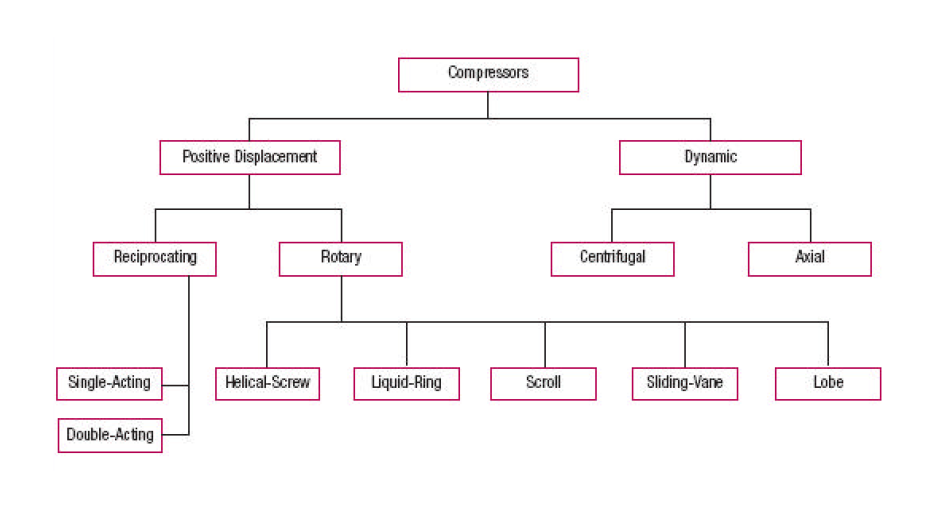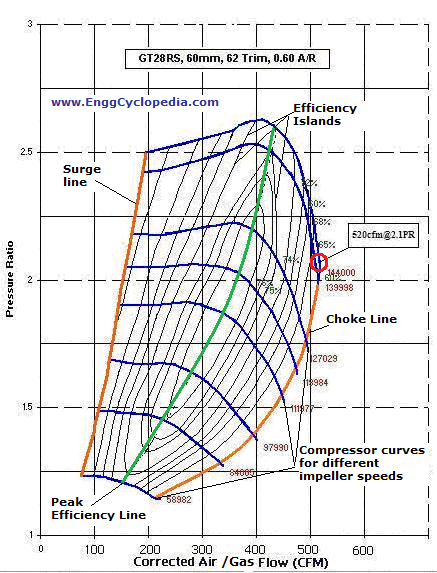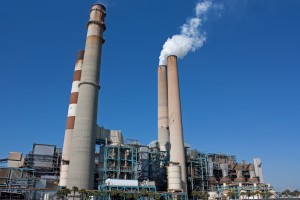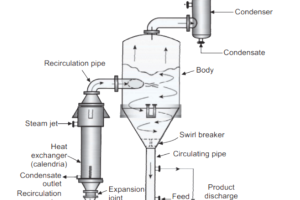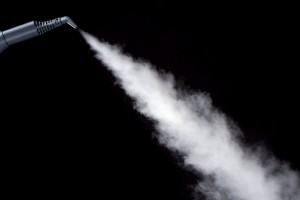Compressor choke is an abnormal operating condition for centrifugal compressor. Choking of centrifugal compressor occurs when the compressor is operating at low discharge pressure and very high flowrates. These high flowrates at compressor choke point are actually the maximum that the compressor can push through. Any further decrease in the outlet resistance will not lead to increase in compressor output. This operating condition is also known as stonewalling of a centrifugal compressor.
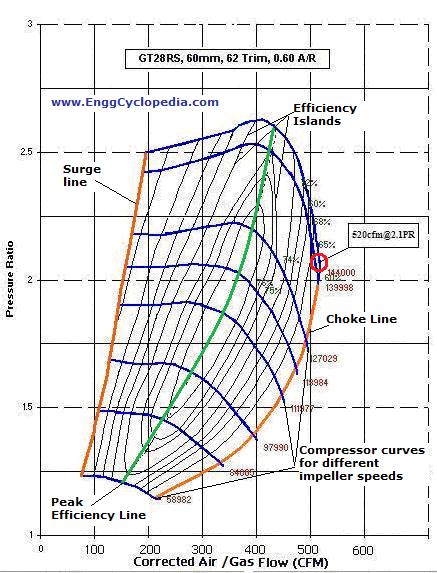
How does a compressor choke?
Stonewall or choke point for a centrifugal compressor occurs when the resistance to flow in the compressor discharge line drops significantly below the normal levels. Due to low resistance, compressor discharge sees very low back pressure. As suggested by the compressor maps for a fixed RPM value, compressor output increases as the backpressure at compressor discharge drops down. This leads to increased gas velocity in the centrifugal compressor. The increase in gas velocity can occur until it can reach its maximum at sonic velocity. When the gas velocity in any of the compressor parts reaches close to sonic velocity (MACH1), this is said to be the choke point or stonewall for compressor operation. The gas velocity and gas flow rate cannot go beyond this value at the choke point.
Damages due to compressor choking
Prolonged operation of a compressor at its choke point can lead to damaging the compressor parts. Compressor choking is not particularly damaging to single-stage centrifugal compressors but can cause serious damage to the rotors and blades of multistage centrifugal and axial compressors.
How to prevent compressor choking
To prevent the compressor choke or stonewall from happening it is needed to maintain a certain level of flow resistance in the compressor outlet line. Anti-choke valves can be used for this purpose in the compressor outlet line. Anti-choke valves close to restrict the flow to keep compressor from stonewalling. When flow resistance in compressor outlet falls and flow begins to increase, the anti-choke valves close to develop resistance to the increasing flow.
